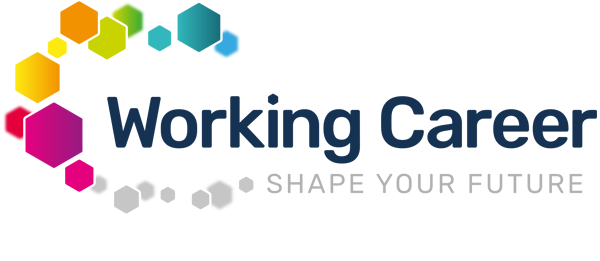The Ultimate Guide to Executive Interviews: Trends, AI, and Coaching Tips
Whether you are a seasoned executive aiming for the next step in your career or an emerging leader ready to make your mark, mastering the executive interview process is essential. Interviews at this level are rigorous and multifaceted, designed to assess not just your experience but your leadership acumen, strategic vision, and cultural fit within an organisation.
With the rise of AI-driven assessments, pre-recorded video interviews, and data-driven hiring processes, preparation is more crucial than ever. In this blog, we will explore the most common types of executive interviews, the growing role of video interviews, and the impact of AI on executive hiring. We will also share expert interview coaching tips to help you conquer your interviews with confidence, poise, and authenticity.
Types of Executive Interviews
Executive interviews often differ significantly from traditional job interviews due to their complexity and high stakes. Here are the most common formats:
1. Phone Interviews
Often used as an initial screening tool, phone interviews help recruiters assess a candidate’s background, leadership experience, and suitability before proceeding to the next stage.
2. Video Interviews
Video interviews are now a standard part of executive hiring, especially for global organisations and remote roles. They enable hiring managers to assess not just a candidate’s answers but also their executive presence, body language, and communication style.
3. Pre-Recorded Video Interviews
While pre-recorded video interviews are more commonly used for mid-level positions, some organisations utilise them for initial executive screening. Candidates record answers to a set of pre-determined questions, allowing hiring teams to assess responses at their convenience. This method is particularly beneficial when dealing with high volumes of applicants.
4. Panel Interviews
A staple of executive hiring, panel interviews involve multiple stakeholders evaluating a candidate at once. Each panel member may focus on different aspects of leadership, strategy, and cultural alignment. Engaging with all panelists and addressing their concerns is key to success.
5. Behavioural Interviews
These interviews use the STAR method (Situation, Task, Action, Result) to assess past experiences and predict future performance. Executives should prepare real-world examples that highlight leadership, decision-making, and resilience.
6. Case Interviews
Often used in consulting and strategic roles, case interviews present business problems that candidates must analyse and solve. This format tests problem-solving abilities, analytical thinking, and strategic vision.
7. Stress Interviews
In stress interviews, candidates face high-pressure questioning to test their ability to remain composed under stress. This format is particularly common in C-suite hiring, where crisis management skills are critical.
How AI is Transforming Executive Interviews
Artificial Intelligence is reshaping executive hiring by enhancing efficiency, objectivity, and decision-making. Some key ways AI is being used include:
1. AI-Powered Candidate Screening
AI-driven platforms analyse vast amounts of data, identifying executive candidates whose backgrounds align with the role’s requirements. These tools assess leadership experience, strategic skills, and cultural fit based on historical hiring data.
2. Video Interview Analysis
Advanced AI tools analyse video interviews, assessing speech patterns, tone, and facial expressions to evaluate a candidate’s suitability. AI-powered platforms such as HireVue provide data-driven insights into a candidate’s executive presence.
3. Bias Reduction in Hiring
AI helps standardise evaluation criteria, reducing unconscious bias in executive recruitment. However, while AI can improve fairness, human judgment remains critical to making the final hiring decision.
4. Predictive Analytics for Leadership Performance
AI-driven predictive analytics assess an executive’s potential to succeed within an organisation by evaluating historical performance data, leadership traits, and behavioural patterns.
Coaching for Executive Interviews: How an Interview Coach Can Help
Given the complexity of executive interviews, interview coaching is invaluable in helping leaders refine their approach. A professional interview coach can provide:
1. Personalised Feedback and Mock Interviews
Executives receive tailored coaching, including video interview simulations and feedback on their performance, body language, and response clarity.
2. Developing a Strong Personal Brand
An interview coach helps executives craft compelling narratives that highlight their unique value proposition. Quantifying achievements and articulating leadership style are key to making a lasting impression.
3. Mastering the STAR Method
Executives must be adept at structuring their responses using the STAR method to demonstrate problem-solving abilities, resilience, and leadership impact.
4. Soft Skills and Executive Presence
Beyond technical expertise, hiring teams assess soft skills such as emotional intelligence, conflict resolution, and adaptability. Interview coaching helps executives refine their communication and leadership presence.
5. Preparing for Tough Questions
Executives should anticipate challenging questions about employment gaps, leadership failures, or strategic decisions. A skilled interview coach helps candidates frame their responses constructively, focusing on growth and learning.
Additional Executive Interview Tips
To excel in executive interviews, candidates should also consider the following:
1. Know Your Audience and the Company
Thoroughly research the organisation’s mission, values, and recent achievements. Understanding your interviewers’ backgrounds can also help build rapport and foster connection.
2. Prepare a Compelling Elevator Pitch
Craft a concise, impactful introduction that highlights your career journey, leadership philosophy, and what sets you apart.
3. Dress the Part
First impressions matter. Dress professionally in line with the company’s culture, balancing executive presence with authenticity.
4. Prepare Thoughtful Questions
At the end of the interview, ask insightful questions about the company’s future, leadership expectations, and development opportunities. Intelligent, strategic questions reflect genuine interest and executive-level thinking.
Final Thoughts
Mastering executive interviews requires a strategic approach, preparation, and confidence. Whether you are facing a panel interview, video interview, or AI-driven assessment, understanding the latest trends and refining your executive presence is crucial.
For those looking to gain a competitive edge, interview coaching provides the tools to enhance communication, nail tough questions, and make a lasting impression.
Get Expert Interview Coaching with Diana Dawson
If you're preparing for an executive interview and want to boost your confidence, refine your strategy, and ensure you present yourself as the strongest candidate, I can help.
I’m Diana Dawson, a Master Coach and Coaching Psychologist specialising in career and interview coaching. With my tailored coaching sessions, you will:
✔ Develop compelling answers using the STAR method
✔ Strengthen your executive presence and leadership storytelling
✔ Master pre-recorded video interviews and AI-driven assessments
✔ Overcome tough interview challenges with confidence
Ready to take your executive interview skills to the next level?
📩 Contact me today to book a coaching session and gain the competitive edge you need to secure your next leadership role!



